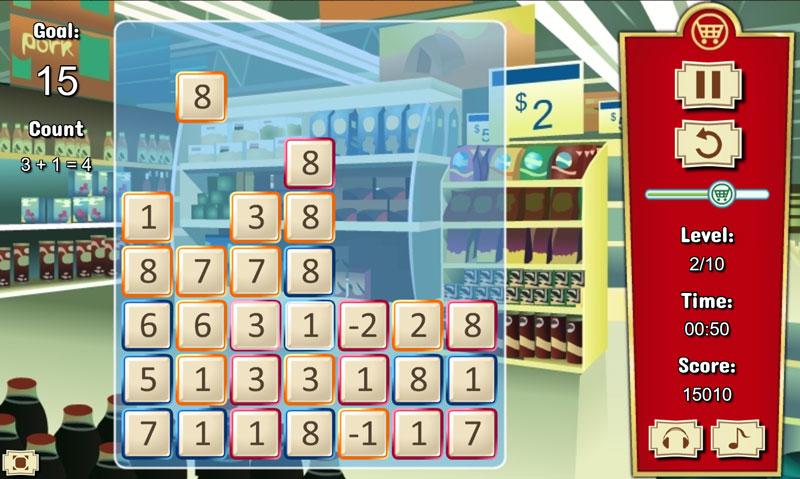You're not just a dad, you're a vital part of your child's learning journey. Math and science can be challenging for a lot of kids but you've got the power to make it fun and engaging. Don't worry if you're not a math whiz – we've got creative, research-backed strategies that'll help your kid pick up math skills from counting to geometry to finances so that they can be a successful student that you will be proud of.
Remember, it's not about having all the answers, it's about being there, exploring and learning together. Let's dive in and discover how you can boost your child's math skills and confidence.
Key Takeaways
- Dads' involvement in math activities significantly boosts a child's cognitive development.
- Math games can make learning numbers fun and interactive.
- Incorporating math in everyday life through activities like counting steps and measuring ingredients helps reinforce math skills.
- Actively assisting with school assignments reinforces math concepts and lays a strong foundation for learning.
What Dads Need To Know About Math And Their Child's Intellectual Development
As a dad, you've got to understand how crucial your kid's math skills are to their intellectual development. It's not just about numbers; it's about building essential cognitive abilities. From the time they take their first tiny steps, your child has the opportunity to begin to understand basic mathematical, spatial, and causal relationships. This early understanding paves the way for more advanced thinking.
But here's the thing that too many dads forget, your involvement is key. Research indicates that dads' involvement in math activities can significantly boost a child's cognitive development. So, roll up your sleeves and get ready to dive into the world of numbers, patterns, and problem-solving. Whether counting the stairs as you climb together, identifying shapes in everyday objects, playing sudoku online or measuring ingredients for a recipe, these experiences offer valuable learning opportunities.

How Dads Can Help Kids Make Math More Understandable
As a parent, you can play a critical role in your child's intellectual development. By introducing them to math games, making math skills a part of their everyday life through basic counting and calculations, and actively engaging in their learning assignments from school, you're not just enhancing their math skills but also making math and science more enjoyable and relatable. Let's delve into the discussion on how you can help your kid to make math more understandable.
Here is a table summarizing these strategies:
| Strategies | Examples |
|---|---|
| Introduce them to Math Games | Board games, online games, mobile apps |
| Incorporate Math in Everyday Life | Counting steps, measuring ingredients, calculating time |
| Engage in School Assignments | Homework assistance, project involvement, regular communication with teachers |
Introduce Them To Math Games
They'll quickly learn to love numbers if you introduce them to fun and interactive math games. Thankfully there are a ton of free math and counting games available these days. One source that we're particularly impressed with is over on MortgageCalculator.org where they have a wide variety of money games for all ages that can help make math fun.

For instance, with the Cash Back game your child can practice basic math by making change for purchases. On the other hand, another game we love is Supermarket Numbers. This game is a matching game with a twist. Instead of simply creating patterns based on jewels or colored tiles, you need to tap on tiles that add up to the goal number. Once you reach that combination the tiles explode and if you are too slow and the tiles reach the top ... well ... you lose.

Be strategic in your game selection, it's crucial. Opt for games that combine fun integration of math concepts, ensuring learning becomes an enjoyable experience. Your little ones will be thrilled to solve problems when they're part of their favorite games.
Now, don't forget the reward system. Kids are motivated by rewards. So, whether it's a star, a sticker, or an extra playtime minute, make sure to recognize their efforts. Make them feel like they belong in this world of numbers and calculations, and you'll see their confidence soar.

Make Math Skills Part Of Your Child's Everyday Life
You'll be surprised how much they enjoy adding up the grocery bill or calculating the time to their favorite TV show. The concept of "Math Shopping", where you engage them in pricing items and comparing the costs can be fun and educational too. Ask them to predict the total before reaching the checkout counter and give them a reward if they get things right.
Cooking measurements are another great way to incorporate math. A recipe can be a math lesson in disguise. Let them measure ingredients, double a recipe, or calculate cooking times.
Another practical math idea is to work with your child on telling time using a traditional analog clock. This can be practiced daily, such as calculating how long until dinner or bedtime.
These everyday activities make math skills a part of their life, fostering a sense of belonging and accomplishment that moves mathematics from an obscure concept to a practical skill that they can apply to daily life.
Be An Engaged Parent And Help Them With Learning Assignments From School
It's crucial to be actively involved in your child's education by assisting with school assignments. Your parental involvement reinforces math concepts and lays a strong foundation for learning. A combination of clear homework strategies and consistent support will enable your child to grasp complex math concepts with ease.
Act as a guide, not a solver though! This will help encourage your child to approach problems independently. Reinforce concepts they're struggling with, using real-life examples to illustrate. Make math homework a shared learning experience, opening doors for your child to ask questions and express uncertainties. Show them it's okay not to know everything and that the desire to learn is what you want to see from them.
You're not just their parent, but also a partner in their educational journey. This involvement will foster a sense of belonging and security, making learning a joyful experience for your child.

Don't Ignore Potential Signs Of A Learning Disability
Don't overlook potential signs of a learning disability in your child, as early detection and intervention can significantly improve their mathematical development. Identifying learning disabilities can be challenging, but if your child is struggling to recall basic math facts, having trouble with precision, or experiencing difficulty making connections in math, they may need additional support.
It's crucial to seek professional help if you notice these signs. Psychologists and educational therapists can provide valuable insights and offer strategies to help your child. Remember, a learning disability doesn't define your child; it's just one aspect of their learning profile.
Supporting learning at home is equally important. Reinforce what they're learning in school and create a safe space for them to make mistakes. Use everyday situations to practice math skills and encourage a growth mindset. Remember, progress may be slow, but it's progress nonetheless.
Feeling like you belong in a community of other dads facing similar challenges can be comforting. Seek out support groups and forums where you can share experiences, tips, and resources. You're not alone in this journey, and together, you can help your child thrive despite their learning disability.

